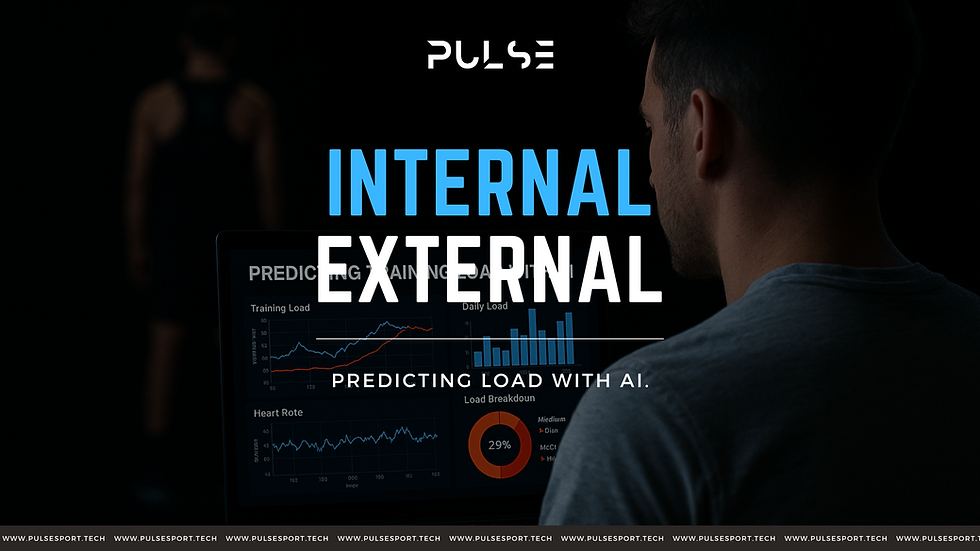The Science of Sleep: Its Impact on Athletic Performance
- ramseytognirt
- May 17, 2024
- 3 min read

Sleep is a critical component of overall health and well-being, with extensive research underscoring its significant impacts on physical, cognitive, and emotional functions. For athletes, sleep is particularly vital as it directly influences performance, recovery, and competitive success. This report delves into the scientific underpinnings of sleep and its effects on athletic performance, providing evidence-based recommendations for enhancing sleep quality among athletes.
The Science of Sleep
Sleep can be divided into several stages, which include non-rapid eye movement (NREM) sleep and rapid eye movement (REM) sleep. NREM sleep encompasses three phases, from light sleep (stages 1 and 2) to deep sleep (stage 3), while REM sleep is associated with dreaming and brain activity that resembles wakefulness (Watson, 2017).
Deep sleep, or slow-wave sleep, is particularly crucial for physical recovery and health, as it facilitates the repair of tissues, muscle growth, and the release of growth hormones. Conversely, REM sleep supports cognitive functions, including memory consolidation and emotional regulation, both essential for athletic performance (Samuels, 2009).
Impact of Sleep on Athletic Performance
A growing body of research suggests that adequate sleep can enhance athletic performance through various mechanisms. These include improvements in reaction times, accuracy, speed, and overall mental well-being (Halson, 2014). Sleep deprivation, on the other hand, can lead to a decrease in these areas, impacting an athlete's ability to perform at their best.
Moreover, sleep is critical for recovery. A study by Mah et al. (2011) showed that extending sleep to 10 hours per night significantly improved basketball players' sprint times, shooting accuracy, and reduced fatigue levels. Such findings highlight the direct benefits of optimal sleep duration on performance metrics.
Causes of Poor Sleep in Athletes
Athletes may experience poor sleep due to various factors including:
Pre-competition anxiety can elevate stress levels and hinder the ability to fall asleep
Travel and scheduling can disrupt natural sleep rhythms and lead to jet lag, especially when crossing multiple time zones
Overtraining syndrome where excessive training loads without adequate rest can impair sleep quality
Strategies to Enhance Sleep Quality
To mitigate these challenges and enhance sleep quality, athletes should adopt the following strategies:
1. Establish a consistent sleep routine: Going to bed and waking up at the same time every day helps synchronize the body's internal clock.
2. Create a conducive sleep environment: This involves optimizing bedroom conditions, such as maintaining a cool, dark, and quiet space.
3. Limit exposure to blue light before bedtime: Avoiding screens from devices such as smartphones and computers can prevent disruptions in melatonin production, which is crucial for sleep.
4. Incorporate relaxation techniques: Techniques such as mindfulness meditation, progressive muscle relaxation, and deep breathing exercises can reduce anxiety and promote better sleep.
Overall, optimal sleep is a cornerstone of athletic performance and recovery. By understanding the biological mechanisms of sleep and addressing factors that impair sleep quality, athletes can significantly enhance their performance and overall well-being. Implementing practical strategies to improve sleep hygiene can lead to marked improvements in both competitive outcomes and health.
References
- Fullagar, H. H. K., Skorski, S., Duffield, R., Hammes, D., Coutts, A. J., & Meyer, T. (2016). Sleep and athletic performance: the effects of sleep loss on exercise performance, and physiological and cognitive responses to exercise. Sports Medicine, 46(2), 161-186.
- Gringras, P., Middleton, B., Skene, D. J., & Revell, V. L. (2015). Breathe e-books: blue light hazard and LEDs: fact or fiction? Sleep Medicine Reviews, 21, 17-24.
- Halson, S. L. (2014). Sleep in elite athletes and nutritional interventions to enhance sleep. Sports Medicine, 44(Suppl 1), S13-S23.
- Juliff, L. E., Halson, S. L., & Peiffer, J. J. (2015). Understanding sleep disturbance in athletes before important competitions. Journal of Science and Medicine in Sport, 18(1), 13-18.
- Kreher, J. B., & Schwartz, J. B. (2012). Overtraining syndrome: a practical guide. Sports Health, 4(2), 128-138.
- Leatherwood, W. E., & Dragoo, J. L. (2013). Effect of airline travel on performance: a review of the literature. British Journal of Sports Medicine, 47(9), 561-567.
- Mah, C. D., Mah, K. E., Kezirian, E. J., & Dement, W. C. (2011). The effects of sleep extension on the athletic performance of collegiate basketball players. Sleep, 34(7), 943-950.
- Samuels, C. (2009). Sleep, recovery, and performance: the new frontier in high-performance athletics. Neurologic Clinics, 27(1), 169-180.
- Watson, N. F. (2017). Sleep and Athletic Performance. Current Sports Medicine Reports, 16(6), 413-418.
- Walker, M. (2017). Why We Sleep: Unlocking the Power of Sleep and Dreams. New York: Simon & Schuster.



Comments